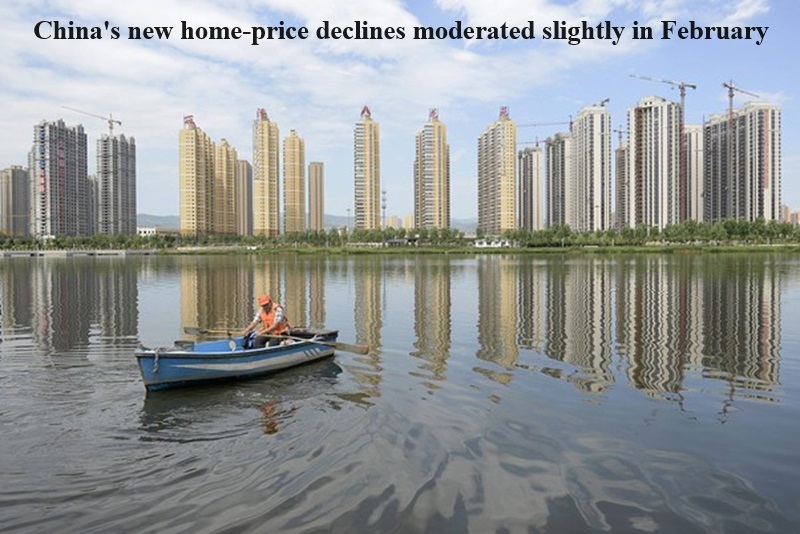
In February, China observed a marginal moderation in the decline of new home prices, suggesting that increased policy support measures are struggling to stabilize the sector.
Data from the National Bureau of Statistics, as reported by Bloomberg, revealed that new-home prices in 70 cities, excluding state-subsidized housing, decreased by 0.36 percent last month, a slight improvement from the 0.37 percent decline in January.
Similarly, the second-hand market saw a reduction in price drops to 0.62 percent from 0.68 percent, indicating a gradual easing of the downward pressure on home prices despite ongoing challenges.
The importance of halting the slide in property values cannot be overstated, as declining sales exacerbate liquidity concerns for developers, impeding their ability to meet debt obligations. The liquidity squeeze has intensified, with major developers such as China Vanke Co. facing heightened default risks.
In response, Chinese authorities have ramped up efforts to bolster the housing market by urging banks to extend financing to developers and granting local governments flexibility in implementing buyer-friendly policies. However, despite these interventions, new-home sales plummeted by 60 percent last month compared to a year earlier.
Acknowledging the severity of the situation, China’s housing minister emphasized the critical task of stabilizing the market, particularly in addressing capital-related issues. Concerns over developers’ financial health have escalated, with companies like Country Garden Holdings Co. facing liquidation petitions and China Evergrande Group dealing with winding-up orders.
Policymakers have pressured banks to increase property loans through “white lists” to facilitate project completion amid developer struggles. By February’s end, state-owned lenders had approved over 200 billion yuan ($28 billion) of bank loans for eligible property projects, signaling an intensified effort to buoy the sector.
Amid these developments, homebuyers have increasingly turned to the second-hand market, attracted by falling prices and uncertainties surrounding the delivery timelines of new properties. This shift has led to existing home sales surpassing new properties by area for the first time last year, indicating changing consumer preferences amidst market dynamics. While these developments offer some relief, analysts caution that sustained recovery depends on robust policy interventions.
With the central government granting local officials greater autonomy, there are expectations for more adjustments to rules and regulations to stabilize the housing market. Some tier-2 cities have already eased home-buying restrictions, fueling optimism for broader policy reforms across larger urban centers.

Post Your Comments